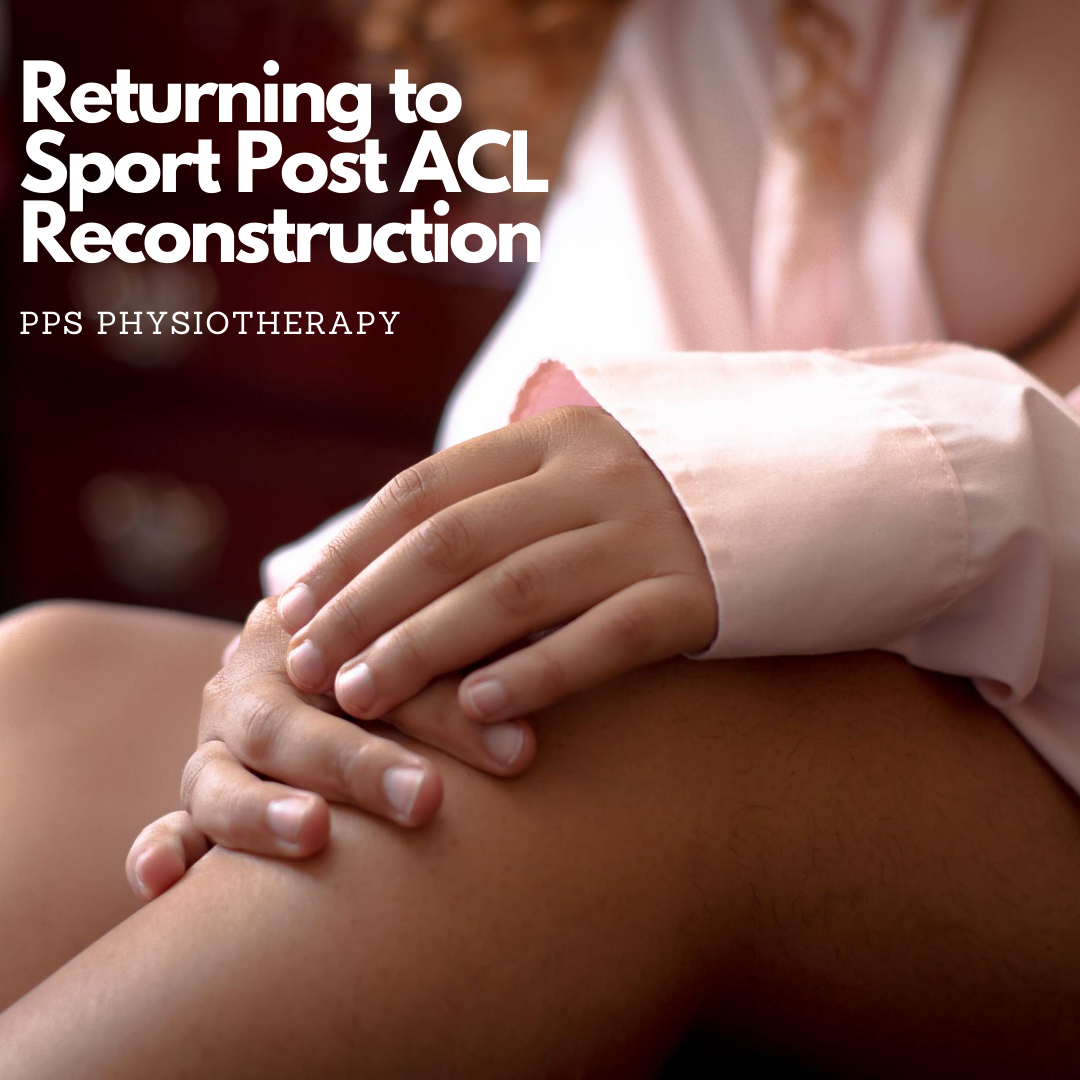So, after almost a year of rehabilitation, you’ve nearly reached the end and can’t wait to finally return back to playing sport. However, even after undergoing the surgery, there still remains a risk of re-tearing your new ACL or even the ACL in your opposite knee. In a systematic review, it was found that the overall risk of re-rupturing your new ACL is 2 – 10% and the risk of rupturing your other ACL is 8 – 16%. The most common time to re-injure your is knee is within the first 2-6 years after returning to sport. This suggests that many people are returning to sport too early without finishing a thorough rehab program and achieving all the appropriate milestones. In order to make sure that you are truly ready to return, here are a few tips and guidelines to prepare you.
- Wait AT LEAST 9 months after surgery- Going back to sport any earlier than 9 months post ACL reconstruction greatly increases your chances of re-rupture/tearing. For every month you delay returning to sport and continue with your rehabilitation (up to 9 months after the surgery), the risk of re-injuring your knee reduces by 51%. By waiting to return to sport, the tissue has time to heal and your mental well-being surrounding return to sport improves.
- Wait for swelling to reduce and ensure knee is stable/not giving way – If you are continuing to experience the feeling of your knee giving way, it is a sign that there is still some instability within the knee. You should not be returning to sport if your are experiencing ongoing instability as you may risk further injury. It is also important that there is no swelling left in the knee and that it looks symmetrical to the uninjured knee.
- Range of motion and muscle strength in quadriceps are equal – You must be able to achieve AT least 120o knee bend and be able to completely straighten your knee before you return to sport. A 2017 study found that only about 14% of young athletes have equal strength in their legs even after being cleared to return to sport which shows that this is an important factor that people aren’t addressing enough in their rehabilitation. It is important you have equal strength in your quadriceps before you return to sport as this will allow you to maintain your ability to play sport and avoid injury.
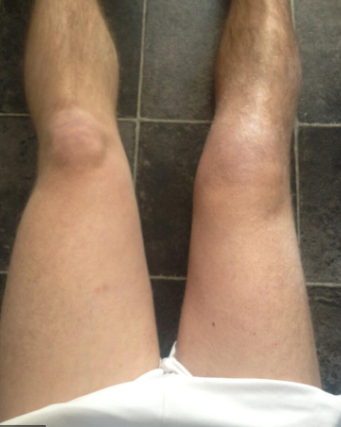
- Equal hopping distance on both legs – It is important that you are able to hop the equal distance on both legs AND also have good landing technique before returning to sport. This suggests equal strength and function in the leg muscles, and those who were able to achieve equal hopping ability had twice the odds of returning to sport. It is important to note that this can be an inaccurate measure if the uninjured leg has significantly de-conditioned during the rehabilitation. The proposed normative data is shown below
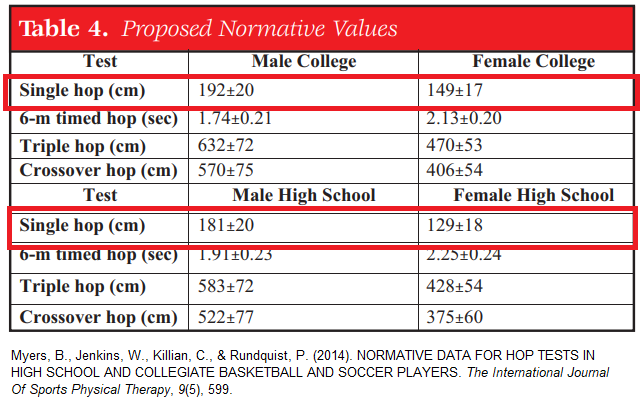
- Perform a gradual return to sport – Your return to sport rehabilitation program should start with sport-specific exercises that do not cause pain or swelling. This is particularly important for athletes who are returning to high pace sports with a lot of stop start motions or rapid change of directions. After waiting 9 months and achieving the above criteria, you can then progress to unrestricted training as it has been shown to result in better knee function in the long term than those who didn’t. You should undergo AT LEAST 10 full training sessions before returning to games, as it allows you to gradually become accustomed to the pace and demands of a sport, which is difficult to replicate in a clinical setting.
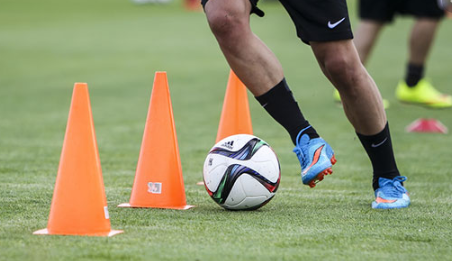
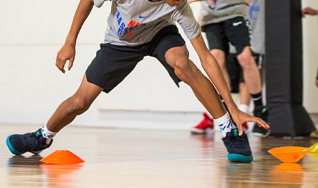
- Be mentally ready to return to sport – One of the main factors that prevents athletes from returning is the anxiety regarding re-injury, and many opt to avoid sport altogether. It is also common for athletes undergoing rehabilitation to experience mental health problems due to the severity and impact of the injury. Therefore, it is also important to integrate mental healthcare providers such as sports and health psychologists to working alongside your physiotherapist and trainers during your rehabilitation to ensure you have the best outcomes.
So if you or someone you know is getting ready to return to sport make sure you are truly ready and are at a low risk of re-injuring yourself. Book an appointment to see one of our friendly physiotherapists at our Carlingford (9871 2022) or Kellyville (9672 6752) practice and we can assess you to make sure you achieve all the appropriate criteria.
- Kevin Guo (Physiotherapist)

